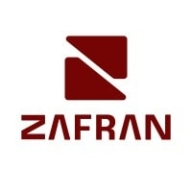


Tenable Security Center and SentinelOne Singularity Identity compete in the cybersecurity solutions category, focusing on vulnerability management and threat detection, respectively. Tenable holds the upper hand with superior vulnerability management features, while SentinelOne excels in threat detection capabilities.
Features: Tenable Security Center is known for its robust vulnerability scanning and comprehensive dashboards that streamline threat prioritization, enhanced by its distributed scan model for efficiency. SentinelOne Singularity Identity employs advanced threat detection with behavior-based analysis, XDR capabilities for seamless third-party integration, and emphasizes real-time threat response and a modern security infrastructure.
Room for Improvement: Tenable Security Center needs to improve reporting flexibility and integration with third-party tools to facilitate better data correlation. Users express the desire for easier report configuration and compliance audits. On the other hand, SentinelOne Singularity Identity could enhance endpoint management, introduce web filtering and automated updates for cloud versions, and improve user interface and support response times.
Ease of Deployment and Customer Service: Tenable Security Center, primarily deployed on-premises, presents a stable environment but has a complex initial setup. Its technical support is considered good yet sometimes delayed, with users wanting more proactive service. SentinelOne Singularity Identity, mainly cloud-based, is easier to deploy with real-time updates but needs better support interaction and faster resolution for complex queries.
Pricing and ROI: Tenable Security Center's asset-based pricing may be high for smaller enterprises but provides value to larger organizations, seen in reduced vulnerability management man-hours. SentinelOne Singularity Identity offers competitive pricing compared to solutions like CrowdStrike, though its licensing lacks transparency due to annual increases. Both offer essential security features justifying the investment for modern organizational protection needs.



Zafran Security integrates with existing security tools to identify and mitigate vulnerabilities effectively, proving that most critical vulnerabilities are not exploitable, optimizing threat management.
Zafran Security introduces an innovative operating model for managing security threats and vulnerabilities. By leveraging the threat exposure management platform, it pinpoints and prioritizes exploitable vulnerabilities, reducing risk through immediate remediation. This platform enhances your hybrid cloud security by normalizing vulnerability signals and integrating specific IT context data, such as CVE runtime presence and internet asset reachability, into its analysis. No longer reliant on patch windows, Zafran Security allows you to manage risks actively.
What are the key features of Zafran Security?
What benefits can users expect from Zafran Security?
In industries where security is paramount, such as finance and healthcare, Zafran Security provides invaluable protection by ensuring that only exploitable vulnerabilities are addressed. It allows entities to maintain robust security measures while allocating resources efficiently, fitting seamlessly into existing security strategies.
Singularity Identity, a component of the Singularity platform, provides threat detection & response (ITDR) capabilities to defend Active Directory and domain-joined endpoints in real-time from adversaries aiming to gain persistent, elevated privilege and move covertly. Singularity Identity provides actionable, high-fidelity insight as attacks emerge from managed and unmanaged devices. It detects identity misuse and reconnaissance activity happening within endpoint processes targeting critical domain servers, service accounts, local credentials, local data, network data, and cloud data. On-agent cloaking and deception techniques slow the adversary down while providing situational awareness and halting adversarial attempts at lateral movement. Singularity Identity helps you detect and respond to identity-based attacks, providing early warning while misdirecting them away from production assets.
Singularity Identity’s primary use case is to protect credential data and disrupt identity-based attacks. The most valuable function of Singularity Identity is its ability to misdirect attackers by providing deceptive data to identity-based recon attacks. Additionally, it can hide and deny access to locally stored credentials or identity data on Active Directory domain controllers.
Singularity Identity also provides rapid detection and respond to identity attacks, capturing attack activity and feeding it directly to the Singularity platform’s Security DataLake for enterprise-wide analysis and response.
By implementing Singularity Identity, organizations benefit from enhanced security, reduced credential-related risks, and improved user productivity. It detects and responds to identity-based attacks, ensuring only authorized individuals can access critical identity data. With its cloaking capabilities to hide identity stored locally on endpoints or in the identity infrastructure and it’s ability to provide decoy results to identity-based attacks, organizations can effectively secure their sensitive or privileged identities, resulting in improved overall identity security.
Get a risk-based view of your IT, security and compliance posture so you can quickly identify, investigate and prioritize your most critical assets and vulnerabilities.
Managed on-premises and powered by Nessus technology, the Tenable Security Center (formerly Tenable.sc) suite of products provides the industry’s most comprehensive vulnerability coverage with real-time continuous assessment of your network. It’s your complete end-to-end vulnerability management solution.
We monitor all Vulnerability Management reviews to prevent fraudulent reviews and keep review quality high. We do not post reviews by company employees or direct competitors. We validate each review for authenticity via cross-reference with LinkedIn, and personal follow-up with the reviewer when necessary.